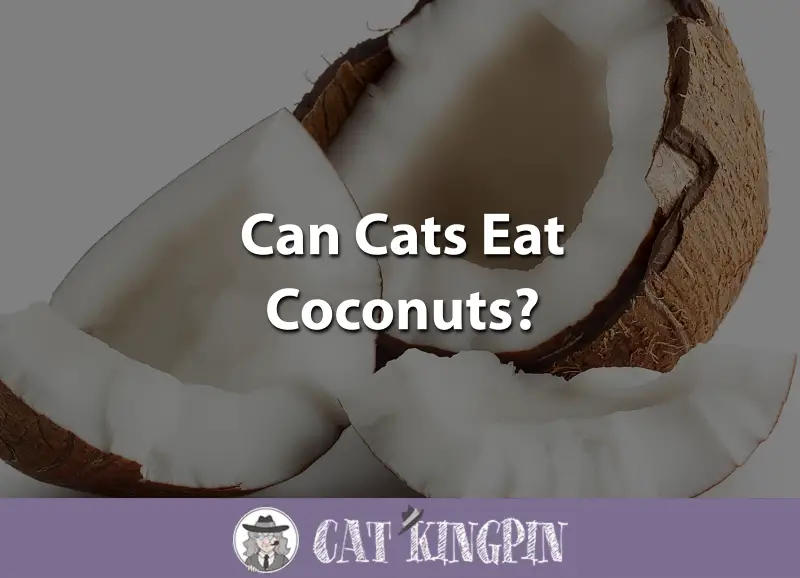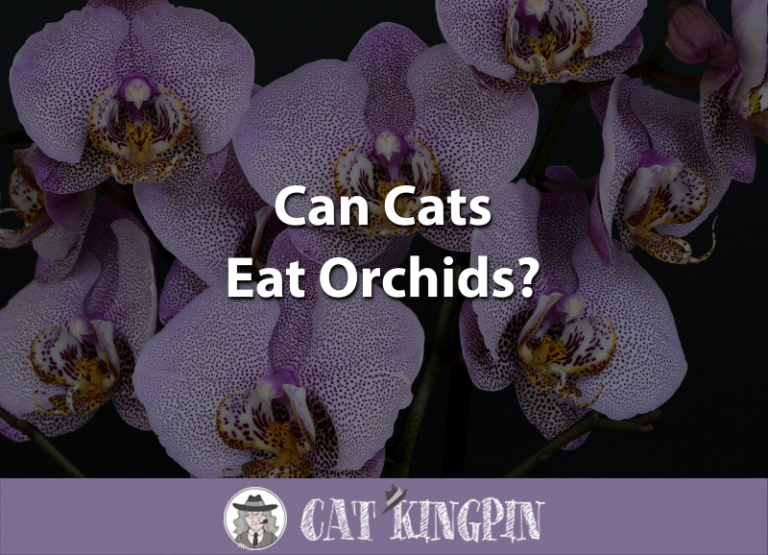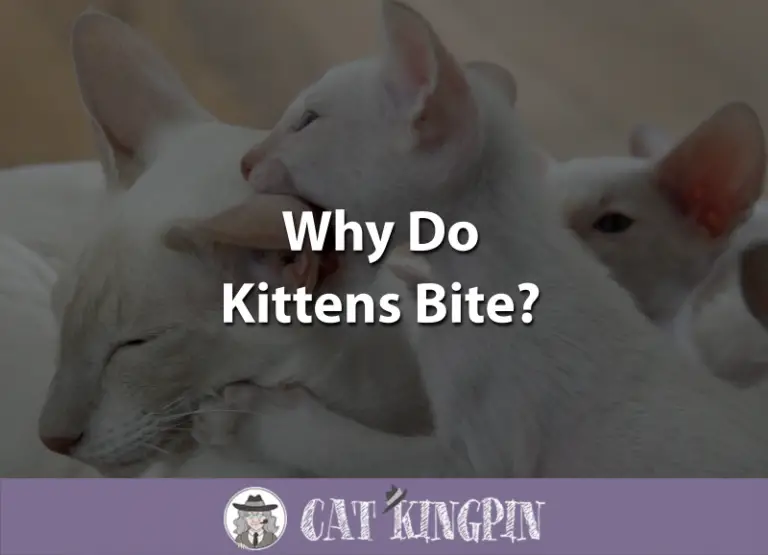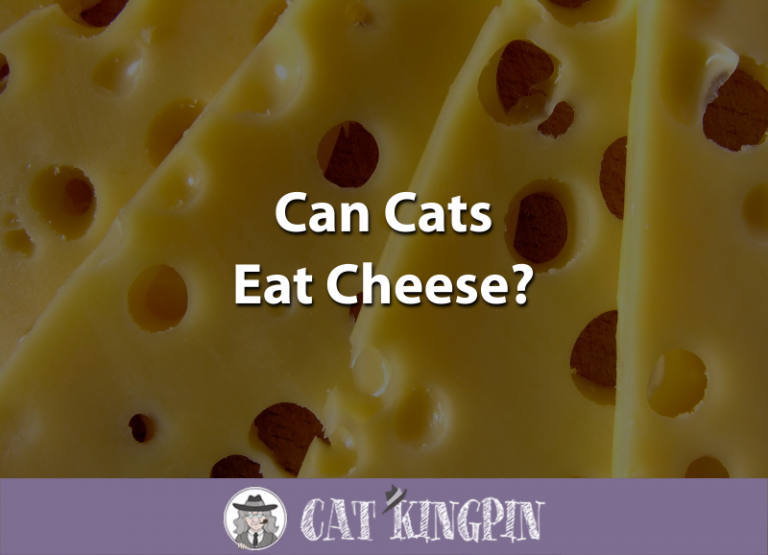Can Cats Eat Coconuts?
Nowadays, it seems like coconut is more popular than ever. Coconut products or flavoring can be found in many tasty foods, and people even tout the health benefits of the versatile coconut.
But, can cats eat coconuts?
In this article we’ll cover the following:
- Cats and Coconuts: What You Need to Know
- Can Cats Eat Coconut Meat?
- Can Cats Drink Coconut Water?
- Can Kittens Have Coconut?
- Benefits/Drawbacks to Cats Eating Coconut
- Healthy Alternatives to Coconut
Cats and Coconuts: What You Need to Know
Everyone knows what a coconut looks like. But did you know that the coconut isn’t actually a nut?
Instead, it is a drupe, along with apricots, olives, peaches, plums, and cherries. Unlike those other drupes, however, the outer layer of the coconut matures to form a dry husk.
Obviously, no cat is going to eat a rock-hard coconut. But, as we can see from the video below, this doesn’t mean they can’t have some fun with one.
https://youtu.be/9sUeqBvu4Uo
It’s only when you crack open a coconut that you’ll find the edible, soft, white flesh commonly called coconut meat, along with coconut water. When we talk about a cat eating coconut, what we are really referring to is a cat eating the coconut meat inside the husk.
The coconut oil and coconut milk you find in most grocery stores does not occur naturally; instead, they are products made through human processing. If you want to find out if cats can drink coconut milk, check this article out.
As far as eating coconut meat, the video below shows that some cats really like the taste.
But just because they might like it, is coconut good for cats?
First, since cats are obligate carnivores, they derive virtually all of their nutrition from eating meat and don’t really get much nutritional benefit from eating plant materials. Secondly, there is not a lot of research on whether eating coconut is healthy for cats.
What we do know is that coconut meat is extremely high in fat, and most of this is saturated fat. Most human nutritionists discourage people from consuming coconut and suggest we would be healthier replacing coconut products in our diet with foods that have more unsaturated fats.
Cats, however, process fat differently than humans.
Cats can enjoy a diet proportionately higher in lipids, including saturated fats, without any negative effects. The main problem with cats eating foods high in fats is that they may consume too many calories and could become overweight.
Coconut meat also has a laxative effect, because coconut is high in dietary fiber. Cats, however, don’t need fiber in their diets.
Can Cats Eat Coconut?
It seems pretty clear that eating small amounts of coconut is not likely to cause ill effects in your cat. However, consuming coconut meat often, or in large quantities, could significantly increase the chance of your cat becoming overweight or obese.
In the short term, coconut meat can also have a laxative effect. This could lead to loose stools and make cleaning the litter box an even less desirable chore.
Can Cats Drink Coconut Water?
Coconut water is the clear liquid inside of the coconut. This liquid is 95% water, 4% carbohydrates (comprised of sugars and fiber), with and 1% other ingredients that contain insignificant nutrition.
Drinking a little coconut water from time to time won’t hurt your cat, but, as with coconut meat, they won’t benefit from the extra carbs or fiber, either.
Can Kittens Have Coconut?
Kittens may be little cats, but they tend to be even more susceptible than adult cats to many things since they are still developing. Kittens could be more sensitive to the laxative effects of eating coconut, causing diarrhea, or be more likely to be harmed by an allergic reaction to it, possibly leading to a trip to the vet.
When it comes to kittens, it’s always best to stick to a high-quality kitten food which they can derive all of their nutrients from, like Blue Wilderness Kitten Food.
Benefits/Drawbacks to Cats Eating Coconut
Cats that regularly eat coconut meat are at risk of weight gain. Obesity in cats has been linked to a number of negative health effects including:
- Diabetes
- Liver disease
- Lameness and arthritis
- Skin problems
- Increased surgical and anesthetic risk
- Decreased quality and length of life
Additionally, the laxative effect of coconut could cause your cat to have loose stools, which is uncomfortable for them and, ultimately, a mess for you. Beyond that, this could also lead to dehydration in extreme cases and cause your cat even greater suffering.
Another potential drawback is that eating coconut has caused allergic reactions in humans, including anaphylaxis, which results in loss of blood pressure and breathing difficulties. Although similar anaphylactic reactions to coconuts in cats are not well-documented, food allergies are the third most common allergies in cats.
Symptoms of food allergies in cats include itchy and irritated skin, vomiting, and diarrhea in 10 to 15 percent of affected cats. If you think your cat is having an allergic reaction from eating coconut meat (or any other food for that matter!), it is important that you take them to see your veterinarian immediately.
Healthy Alternatives to Coconut
One alternative to letting your cat have coconut is to feed her a cat food infused with coconut milk. These cat foods don’t always suit every kitty’s taste, but if your cat is coconut crazy, why not give it a try?
Beyond that, you could also try something like Cat Sip. Though this isn’t coconut-flavored, it is pre-treated with lactase to help with digestion and is a nice little treat for your cat, so it might be a good option for kitties that can’t get enough of coconut milk.
In general, it’s best to stick with a high-quality cat food like Blue Wilderness which is grain-free and is primarily made with meat so it’s great for cats.
So, Can Cats Eat Coconuts?
Many people really like coconut, and some people even consider it to be a health food. However, coconut meat is not required in your cat’s diet, and drinking too much coconut milk can lead to weight gain, loose stools, and possibly dehydration.
If your cat enjoys the flavor of coconut, why not try coconut-infused cat food or offer them some Cat Sip instead? It would be a lot better for them than trying to make them a piña colada with coconut milk and pineapple!
Do you have a furry friend who enjoys the taste of coconut? Have you had experience with your cat trying coconut-infused cat food, and did they like it? Please tell us in the comments below; we’d love to hear from you!






